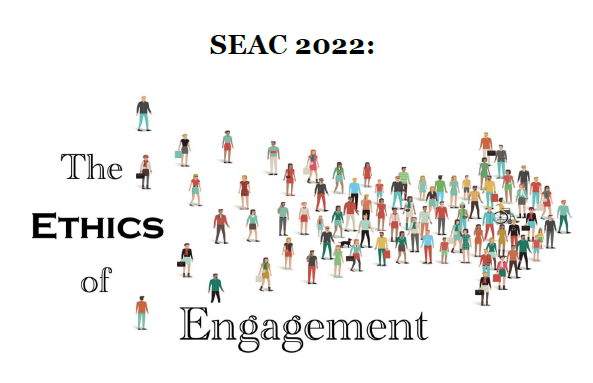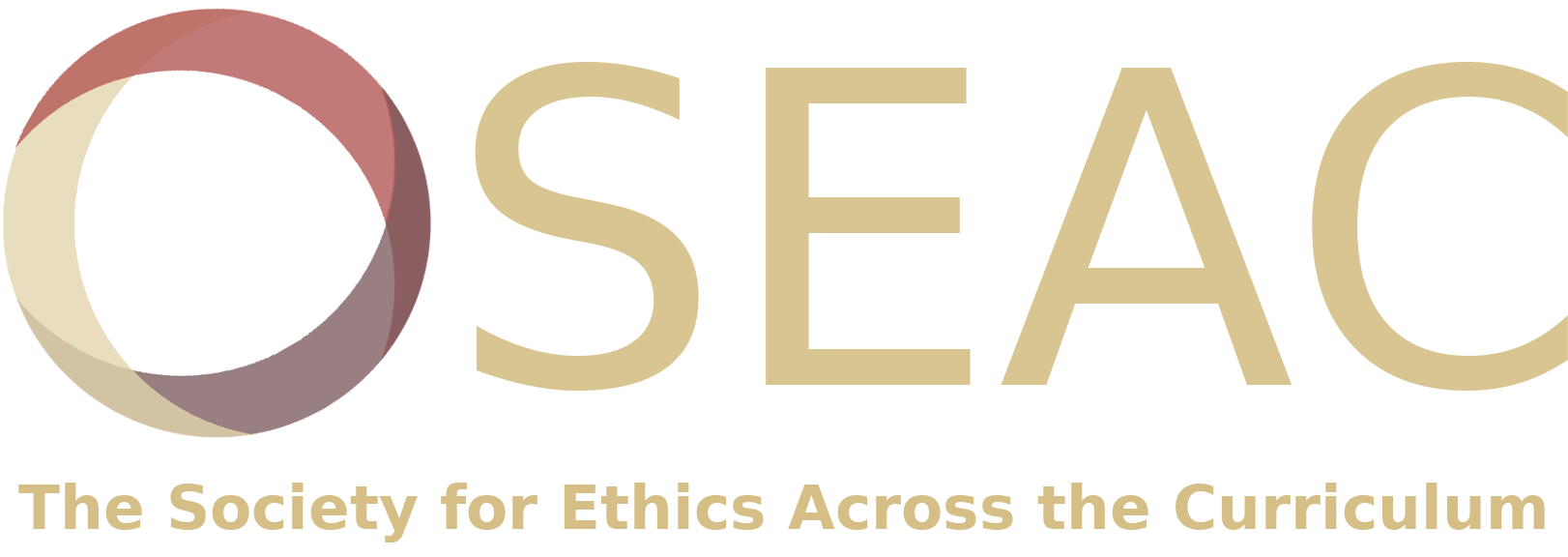
Concurrent Session 2C
Location
Ford Ballroom C, The Inn at Ole Miss
Start Date
6-10-2022 1:15 PM
End Date
6-10-2022 2:25 PM
Description
- Learning Through Conversation: Using the Ethics Bowl Format in the Classroom / Michael Falcetano, Villanova University
In teaching ethics, my primary goal is to give students a framework for teaching themselves how to think about big moral questions, identify their most unshakeable underlying assumptions and principles, and test out those principles by following them to their logical conclusions and complexities. The theme of my course is “conversations,” which we study in a variety of ways – through literary depictions of ethical conversations, tracking ethical disagreements between historical figures, and most importantly, conversing together in class. To encourage this, I structure part of my class after the Ethics Bowl, a high school and intercollegiate level competition wherein students are rewarded for engaging in respectful, thorough, and thoughtful civil discourse. In the competition, students give presentations, ask each other questions, and answer to their peers in turn. They “win” not by defeating the other team’s arguments, but by finding ways to truly listen to each other and move the conversation forward with respect, rather than dominance – whether in debate or agreement. In this paper, I will explain how the Ethics Bowl works, how I have adapted this conversation format for my classroom, how I facilitate this process more as a “coach” than as a lecturer, and some of the primary challenges that arise. I will also reflect upon the way this format allows students to treat the exercise as a practice “drill” to hone specific skills while at the same time fostering student-directed conversations, encouraging active participation, teamwork, and agency in the study of ethics. - An Anatomy of Classroom Engagement / John Uglietta, Grand Valley State University
On the college campus we find requests for engagement in a variety of areas. We are asked to engage the community, the alumni, the administration, and the government, to name just a few. I would like to focus on a type of engagement that is more fundamental to our role as teachers than these other worthwhile endeavors – the engagement of students in the classroom. We are often urged to engage our students, and we are told that this will enhance their learning or their experience. However, reflecting on this request, it becomes less clear to me just what we are seeking. Is engagement a method used to achieve some other educational goal? If so, what is that goal and does engagement achieve it? Even after investigating a variety of methods of engagement and the goals they might achieve, the justification for the emphasis on student engagement remains elusive. Still, I think engagement is very important, perhaps more important than some of the suggested goals. Following a line of argument John Stuart Mill develops in On Liberty, I will argue that while engagement may further these goals, it is important in a deeper way in developing the very habit of engagement and the ability to significantly engage a question. These skills themselves are at the heart of what we seek when we attempt to educate students and create lifelong learners with active minds and critical thinking skills.
Session Chair: Robert English, University of Mississippi
Relational Format
conference proceeding
Recommended Citation
Falcetano, Michael; Uglietta, John; and English, Robert, "Concurrent Session 2C" (2022). Society for Ethics Across the Curriculum Conference. 10.
https://egrove.olemiss.edu/seac/2022/schedule/10
COinS
Oct 6th, 1:15 PM
Oct 6th, 2:25 PM
Concurrent Session 2C
Ford Ballroom C, The Inn at Ole Miss
- Learning Through Conversation: Using the Ethics Bowl Format in the Classroom / Michael Falcetano, Villanova University
In teaching ethics, my primary goal is to give students a framework for teaching themselves how to think about big moral questions, identify their most unshakeable underlying assumptions and principles, and test out those principles by following them to their logical conclusions and complexities. The theme of my course is “conversations,” which we study in a variety of ways – through literary depictions of ethical conversations, tracking ethical disagreements between historical figures, and most importantly, conversing together in class. To encourage this, I structure part of my class after the Ethics Bowl, a high school and intercollegiate level competition wherein students are rewarded for engaging in respectful, thorough, and thoughtful civil discourse. In the competition, students give presentations, ask each other questions, and answer to their peers in turn. They “win” not by defeating the other team’s arguments, but by finding ways to truly listen to each other and move the conversation forward with respect, rather than dominance – whether in debate or agreement. In this paper, I will explain how the Ethics Bowl works, how I have adapted this conversation format for my classroom, how I facilitate this process more as a “coach” than as a lecturer, and some of the primary challenges that arise. I will also reflect upon the way this format allows students to treat the exercise as a practice “drill” to hone specific skills while at the same time fostering student-directed conversations, encouraging active participation, teamwork, and agency in the study of ethics. - An Anatomy of Classroom Engagement / John Uglietta, Grand Valley State University
On the college campus we find requests for engagement in a variety of areas. We are asked to engage the community, the alumni, the administration, and the government, to name just a few. I would like to focus on a type of engagement that is more fundamental to our role as teachers than these other worthwhile endeavors – the engagement of students in the classroom. We are often urged to engage our students, and we are told that this will enhance their learning or their experience. However, reflecting on this request, it becomes less clear to me just what we are seeking. Is engagement a method used to achieve some other educational goal? If so, what is that goal and does engagement achieve it? Even after investigating a variety of methods of engagement and the goals they might achieve, the justification for the emphasis on student engagement remains elusive. Still, I think engagement is very important, perhaps more important than some of the suggested goals. Following a line of argument John Stuart Mill develops in On Liberty, I will argue that while engagement may further these goals, it is important in a deeper way in developing the very habit of engagement and the ability to significantly engage a question. These skills themselves are at the heart of what we seek when we attempt to educate students and create lifelong learners with active minds and critical thinking skills.
Session Chair: Robert English, University of Mississippi


